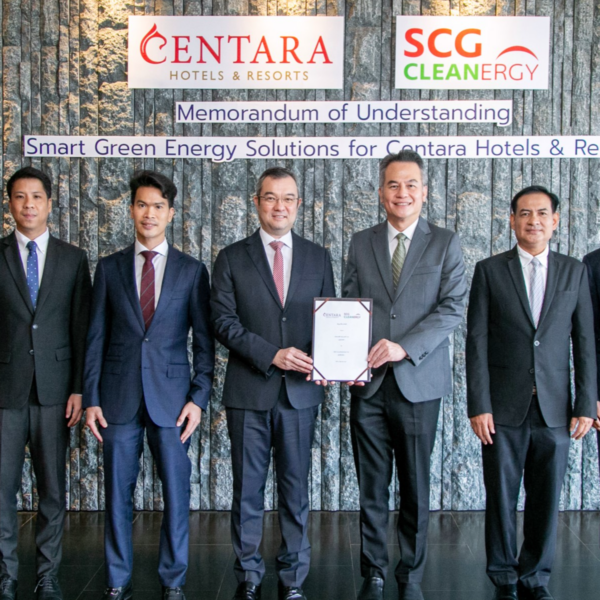
As travelers and guests become increasingly eco-conscious, the hospitality industry must learn to adapt. Hotels, resorts, and restaurants must find ways to meet evolving environmental expectations to stay competitive. While eco-friendliness can be costly upfront, hospitality businesses will ultimately lose revenue if they do not keep up. The integration of renewable energy is a powerful solution to this puzzle.
The adoption of renewable energy in hospitality
Hotels have recognized the call for environmentally conscious practices from their guests. While a step in the right direction, a sign in each room detailing the linen and towel reuse programs is simply not enough.
Hospitality companies are beginning to implement renewable energy sources like solar, wind, and geothermal as an affordable solution to the growing demand for eco-conscious practices. Organizations are also able to install heat pumps as an eco-friendly alternative to HVAC systems without the need for traditional fossil fuels.
Solar energy in hospitality, in particular, is simple to integrate with an upfront investment of solar panels that can be placed on the roof or in a solar farm, depending on the land available to the specific company. Solar also saves businesses money on energy bills while allowing them to take advantage of tax incentives for making the switch. Innovations in renewable energy tech are continuously revolutionizing these efforts, like allowing solar generation to be integrated into the design of the building in windows and solar concentrators.
Bolstering sustainability initiatives
The hospitality sector’s adoption of renewable energy is beneficial to the environment and the sustainability initiatives of the industry at large. It provides alternatives to carbon credits, which can be purchased to offset a company’s carbon footprint. Purchasing these credits isn’t foolproof, however, and it can be seen as a Band-Aid solution to a much bigger problem.
It’s much more responsible to have a direct impact on sustainability, working to lower your carbon footprint on-site. Investing in renewable energy can offer businesses a stronger foundation on which to build the hospitality company’s sustainable future.
Offering a unique selling point for environmentally conscious guests
Sustainability matters to hotel guests, staff, and the planet. Sustainability tech streamlines operations to make them more energy-efficient, and this leads to a better return on experience (ROE) for guests and employees, alike. Further, guests expect a certain level of luxury if they are going to be paying a premium fee. For hospitality companies like resorts and hotels, this has traditionally meant decking out rooms in lavish decor and offering upscale dining experiences.
While this still may ring true for some, there is a large number of people willing to pay extra for sustainable accommodations. A 2023 study by Euromonitor reports that travelers are willing to shell out at least 10% more for eco-tourism options. Providing transparent, tangible evidence of sustainability in the form of renewable energy integration can give a hospitality company the leg up on the competition that it needs in this era of eco-awareness.
Enhancing brand image
As long as hotels are transparent about their renewable energy use, this can work in their brand’s favor. Public perception will be more positive if a hospitality company shows a true commitment to sustainability.
Renewable energy systems provide a degree of self-sufficiency, as well, allowing hotels and other accommodations to operate during power outages and grid failures. This comfort, security, and innovativeness can lead to increased bookings and customer loyalty.
Reducing operational costs
Renewable energy sources like solar panels, wind turbines, and geothermal systems may cost a bit to install initially. However, the investment is worth it for the long-term cost savings. By reducing reliance on fossil fuels, hospitality establishments can avoid fluctuations in energy expenses, producing a more reliable, lower-cost energy bill each month.
This allows hotels and resorts to allocate their resources more strategically and update crucial processes and aspects of operations. This has a knock-on effect of reducing operational costs due to the extra money and time being spent to streamline internal processes.
Meeting sustainable accommodation demand
While renewable energy integration is the ultimate goal for all hospitality companies, it takes time and resources to set up. Hospitality businesses are integral parts of their respective communities, so this investment is well worth it to contribute to local economies.
Step by step, integrating renewable energy into the hospitality industry can create jobs and foster a sense of meaning in staff, guests, and local communities. It’s worth it for accommodations to meet demands for sustainability, even if it has to be done over a years-long period.
The future of sustainable hospitality
The demand for sustainable travel accommodations is poised to continue growing. Eco-consciousness is shaping luxury hotel experiences and resort layouts. The more renewable energy is integrated into the hospitality industry, the better understanding industry professionals will have of the impact it makes on ROE and the environment. Innovations will continue to develop as the importance of renewable energy in hospitality is realized.



















